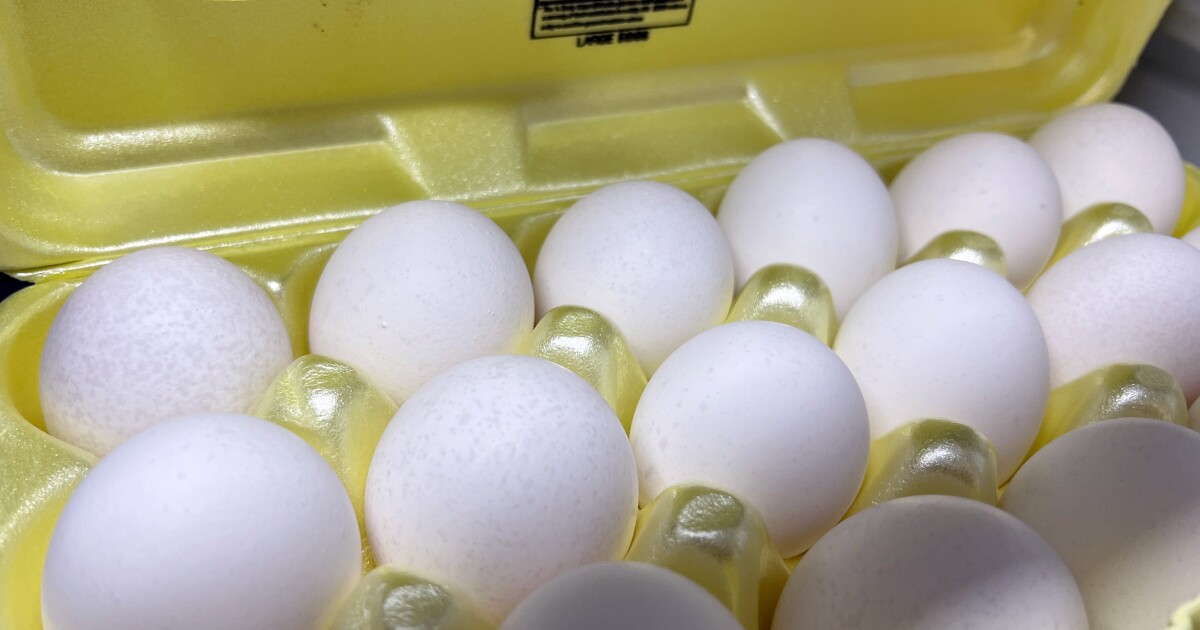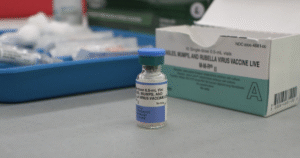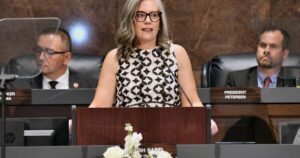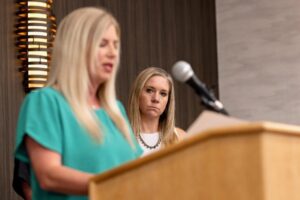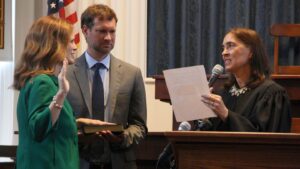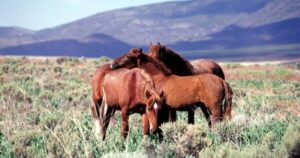Arizona Governor’s Egg Pricing Strategy Faces Scrutiny
In a bid to alleviate the financial burden on consumers, Arizona Governor Katie Hobbs has decided to postpone implementing cage-free egg regulations, aiming to reduce costs for both producers and shoppers. The announcement, made on Friday, delays the enforcement of these rules by the state Department of Agriculture until 2034. However, the expected impact on egg prices might be minimal.
The initial estimates from the Department of Agriculture suggested that transitioning from 67-square-inch cages to free-range barns would reduce costs by only 1 to 3.25 cents per egg. This amounts to a potential savings of 12 to 39 cents per dozen, a modest reduction given that current prices hover near $6 per dozen. Based on an annual per capita consumption of approximately 270 eggs, the savings could range from $2.71 to $8.79 per person each year.
Despite the limited savings, Hobbs’ press aide, Christian Slater, emphasized the governor’s commitment to addressing everyday issues faced by Arizonans. Slater defended the move, stating, “People want their elected officials to take action on the issues that are affecting them every single day in their lives.”
The decision comes amid rising egg prices due to an avian flu outbreak, which has resulted in the culling of infected hens and subsequent supply shortages. The U.S. Department of Agriculture projects that egg prices may increase by another 20% this year.
Meanwhile, legislative developments are unfolding. Senator Shawnna Bolick has introduced a proposal to eliminate the Department of Agriculture’s authority to regulate cage sizes. Bolick argues that while bird flu is beyond control, legislative measures could provide some financial relief to consumers. Her bill, SB 1721, has already passed the Senate along party lines.
Governor Hobbs’ recent directive could potentially offer her a strategic position should she decide to veto Bolick’s bill. However, the broader issue remains unresolved—stemming from a possible initiative by the Humane Society to ban the sale of eggs from caged hens, which could bypass legislative and executive interventions entirely.
Historically, the egg industry, represented by figures like Glenn Hickman, has sought legislative solutions to avoid stricter regulations. When lawmakers hesitated, the Department of Agriculture took charge, proposing a phased approach to cage-free requirements. Initially set for immediate implementation, the rules have already been postponed twice, now being pushed to 2027, with Hobbs seeking an additional seven-year delay.
Legal challenges also loom, as the Goldwater Institute filed a lawsuit on behalf of Tucson restaurant owner Grant Krueger. The suit argues that the Department of Agriculture overstepped its authority by enacting the cage size regulation. Krueger, whose businesses purchase significant quantities of eggs, claims the rule imposes undue financial burdens, estimating a $3,380 annual impact based on current egg consumption.
While the lawsuit survived an initial challenge, further proceedings are required to substantiate Krueger’s claims. No trial date has been set, leaving the future of Arizona’s egg regulations uncertain.

